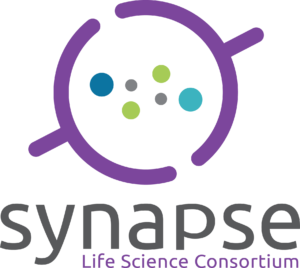Mar-2022
New gene- and cell-therapy manufacturing facility to launch in Hamilton with $580-million commitment
Ontario says it will provide a $40-million loan to the Centre for Commercialization of Regenerative Medicine for its planned $580-million Hamilton facility where life-science companies can develop and commercialize cell and gene therapies.
The CCRM, a non-profit industry group, said Thursday that the facility will be run by a new subsidiary called OmniaBio Inc., which will operate what it hopes to become the largest contract development and manufacturing facility for these therapies in Canada. Up to 2,000 people could be employed at the planned 400,000-square-foot facility by 2026, and it is expected to it take on life-sciences companies of all sizes as clients.
The Alliance for Regenerative Medicine, an international advocacy group for the sector, said in 2021 that there are nearly 1,200 cell- and gene-therapy developers worldwide with more than 1,300 continuing clinical trials. This growing field of therapies treats or prevents diseases with technologies that alter genes or cells in the human body.
CCRM said the new facility would help improve the supply of cells and other biological tools for these therapies and trials in a market where demand for them is five times greater than what’s currently available.
Michael May, the chief executive officer of CCRM, said in an interview that his organization has been working toward such a facility since launching nearly a decade ago. “From Day 1, we understood that to drive commercialization and create companies that stay in Ontario, we needed to build manufacturing capability and capacity,” he said.
The organization has built that capacity gradually, including through a partnership with the MaRS Discovery District entrepreneurship centre and the University Health Network to manufacture therapeutics for use in clinical trials. CCRM has been working over the past three years on developing the Hamilton facility, which was first announced in 2020. There is already a pipeline of potential customers, added Mr. May, who is also OmniaBio’s chair.
Of the $580-million costs, he said that $480-million would come from the private sector for real estate and construction at the McMaster Innovation Park. The remaining $100-million would be directed toward OmniaBio’s operations, and includes the $40-million loan from the province and a further $60-million from the private sector.
Economic Development Minister Vic Fedeli said that OmniaBio was the first-ever client for the province’s new Invest Ontario agency, which has earmarked $400-million to encourage businesses to set up in the province over the next four years. He told The Globe and Mail that he hoped the loan would be a signal to other businesses that his government wants to establish Ontario as a biomanufacturing hub.
“It tells all of the vaccine and medical manufacturers that we’re open for business,” he said. “But it also tells the Ontario patients that they’re going to be able to have access to breakthrough technology, innovative medicines, right here with a with a made-in-Ontario stamp on it.”
The provincial Progressive Conservatives used the Thursday OmniaBio news to announce they would make efforts to encourage life-sciences companies to set up in Ontario, establishing a council of medical experts and private-sector leaders to guide its work. The government said it plans to bring more vaccine, medicine, personal-protective-equipment and medical-supply manufacturing to the province.
The province also said it would work to encourage more Ontario businesses to commercialize their research, and to more easily allow locally made innovations to be used in the health care system – removing roadblocks that Mr. Fedeli acknowledged in March could be a problem for innovators in the province.
Read the full Globe and Mail article here
